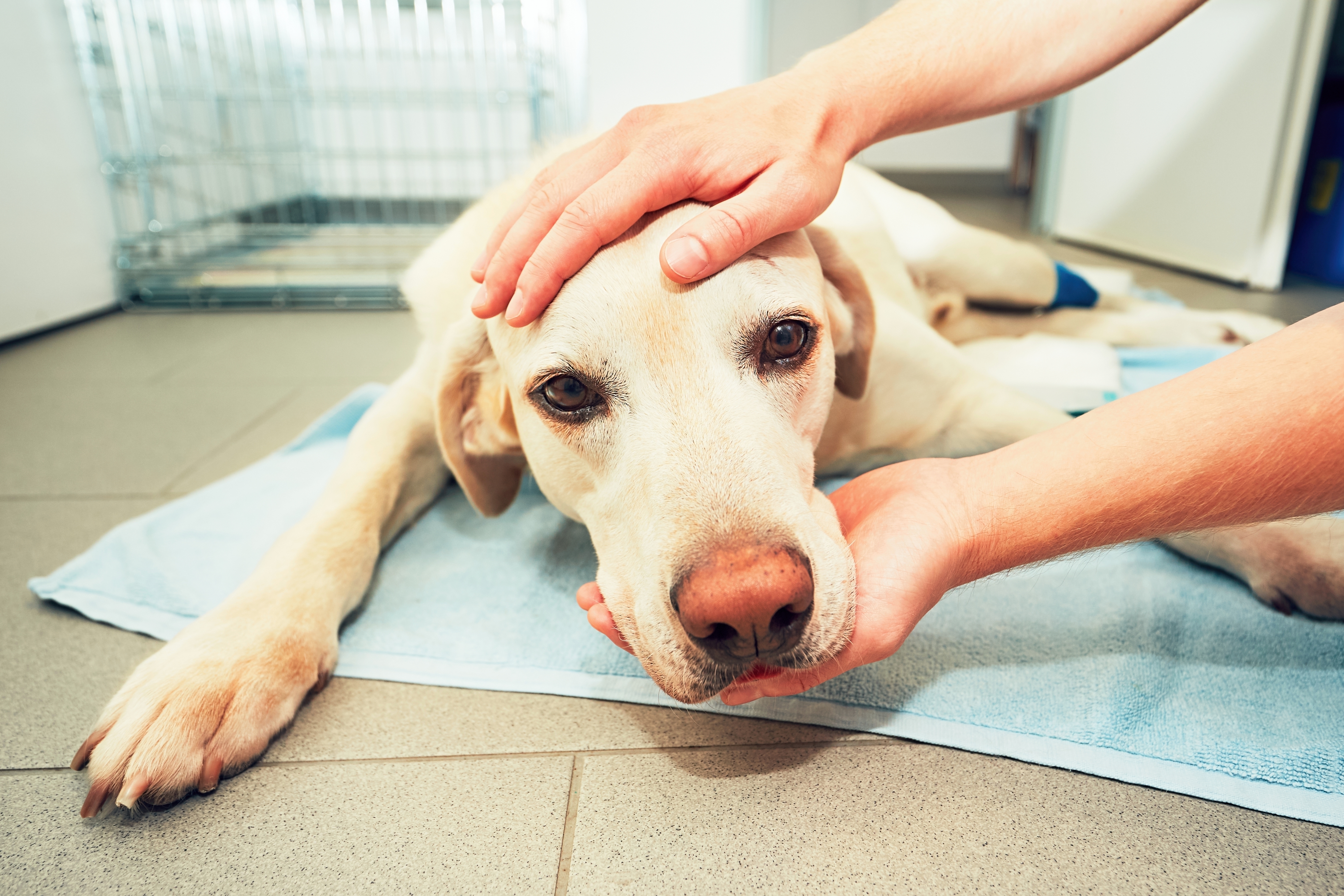Keeping your dog up-to-date on vaccinations protects them from several devastating illnesses, including rabies, parvovirus, distemper, bordetella, and more. Unfortunately, no vaccine will protect your canine companion from every disease they may encounter throughout their life. And while modern vaccines are highly effective, there is always a minuscule risk of vaccine failure. This means that, despite your best efforts, there's no way to ensure that your furry friend will never get sick.
Fortunately, many common illnesses are treatable, especially when detected early. As veterinarians, we encourage you to schedule an appointment as soon as you notice anything "off" about your pet. Bringing them in for annual exams also allows us to monitor their ongoing health and often detect potentially deadly illnesses while they're still in their earliest and most treatable stages. This article will discuss a few of the most common illnesses in dogs and what you need to know about them. Read on to learn more.
1. Diabetes
In dogs, diabetes is a complex illness resulting from either an inadequate response to insulin or a lack of insulin in the blood. When your canine companion eats, their digestive system breaks the food down into glucose and other components. Insulin, secreted by the pancreas, carries glucose to the cells. However, if a dog cannot produce or use insulin properly, it causes elevated blood sugar (glucose) levels. Untreated diabetes often leads to serious health complications, so schedule an appointment right away if your dog shows any symptoms of this illness.
Symptoms of diabetes in dogs include:
- Increased urination
- Excessive thirst
- Increased appetite
- Weight loss
- Lack of energy
- Vomiting

2. Cancer
Cancer is the one diagnosis that no one ever wants to hear. Unfortunately, dogs are just as likely to get cancer as humans. Older dogs are more susceptible, but it can affect dogs of all ages. Roughly half of pets over the age of 10 die because of cancer.
Cancer causes cells to grow uncontrollably and move into the surrounding normal tissue. In some cases, it can spread to other body parts. Like humans, dogs can suffer from many different kinds of cancer. Because of this, it causes a variety of symptoms.
Some of the most common symptoms of cancer in dogs include:
- Lumps
- Wounds/sores that won't heal
- Swelling Lethargy
- Rapid weight loss
- Difficulty passing urine or stool
- Decreased appetite
- Unusual discharge from any part of the body
- Sudden lameness
- Difficulty breathing or coughing
- Foul-smelling breath
There are several ways we diagnose cancer, and there are several treatment options depending on what type of cancer your dog has. We will do everything we can to ensure the best possible prognosis for your precious pet if they ever develop this devastating disease.
3. Periodontal Disease
Periodontal disease is the most common illness in dogs; most suffer from some degree of it by the time they are three years old. Gingivitis and tartar are the most prevalent issues, but dogs can also develop oral infections, abscesses, and tooth loss. Plus, oral infections can enter the bloodstream and damage the heart, kidneys, and liver. Thankfully, you can help prevent periodontal disease in your dog with good oral hygiene, so we recommend having your pet's teeth examined and cleaned (at least) annually to keep these problems at bay. Also, if your dog shows any of the following symptoms, contact us right away.
The symptoms of canine periodontal disease include:
- Bad breath
- Dropping food while eating
- Pawing at the snout
- Refusal to eat
- Tooth loss
- Tooth discoloration
- Excessive drooling
Your dog may also be crankier than usual if they suffer from periodontal disease. You know how miserable they are if you've ever had a toothache. They are just as painful and uncomfortable for dogs as humans. Dogs are excellent at hiding dental pain, and most owners do not realize their dog is suffering.

4. Ear Infections
Dogs develop ear infections for various reasons, making them extremely common. Wax buildup, moisture in the ears, foreign material in the ear canal, autoimmune disorders, and allergies can cause ear infections. Dogs with floppy ears are most frequently plagued by ear infections, but any dog can develop an infection at any time in their life.
Without treatment, what starts as a minor infection could get worse and spread deeper into the ear. Infections that reach the inner ear can cause serious complications, including deafness or facial paralysis. While there are at-home treatments for ear infections, they are not the most reliable or effective solutions. Seeking veterinary care is the best way to clear up your dog's infection and prevent further complications.
Ear infection symptoms in dogs include:
- Head shaking
- Ear scratching
- Pain
- Discharge or odor coming from one or both ears
- Redness or swelling in the ear canal or ear flap
- Crustiness
5. Heartworm
Dogs are a natural host for heartworms, making them susceptible to heartworm disease. Mosquitoes transmit heartworms, and these parasitic worms reside in dogs' hearts and pulmonary arteries after traveling through the body to reach their destination. When not treated, the worms can grow up to a foot in length and resemble thin spaghetti noodles. And within a few years, an infected dog can have hundreds of worms.
Heartworm disease causes several symptoms and can be fatal. We recommend keeping your dog on an effective heartworm preventative and having them checked for heartworm each year.
The symptoms of heartworm in dogs include:
- Persistent cough
- Difficulty breathing
- Lethargy
- Weight loss
- Fatigue following moderate exercise
- Vomiting
Some dogs have no symptoms until the disease has progressed to later — and less treatable — stages. That's why you must have your precious pup tested for this illness annually.
Closing Thoughts
If your dog ever exhibits any of the symptoms above, or you have any other reason to think they could be sick, get them to a veterinarian as quickly as possible. The sooner they can start your furry friend on an appropriate course of treatment, the better their odds of a full recovery. Please contact your veterinarian right away to schedule an appointment. Don't have one yet? We can help you find a local veterinarian.


The Ultimate Guide
to Dog Care
This free guide is an indispensable manual for dog ownership. Filled with veterinary advice and recommendations on every important topic at each stage of your dog’s life, this is all the stuff that responsible dog owners need to know. That is why we are making it free!
